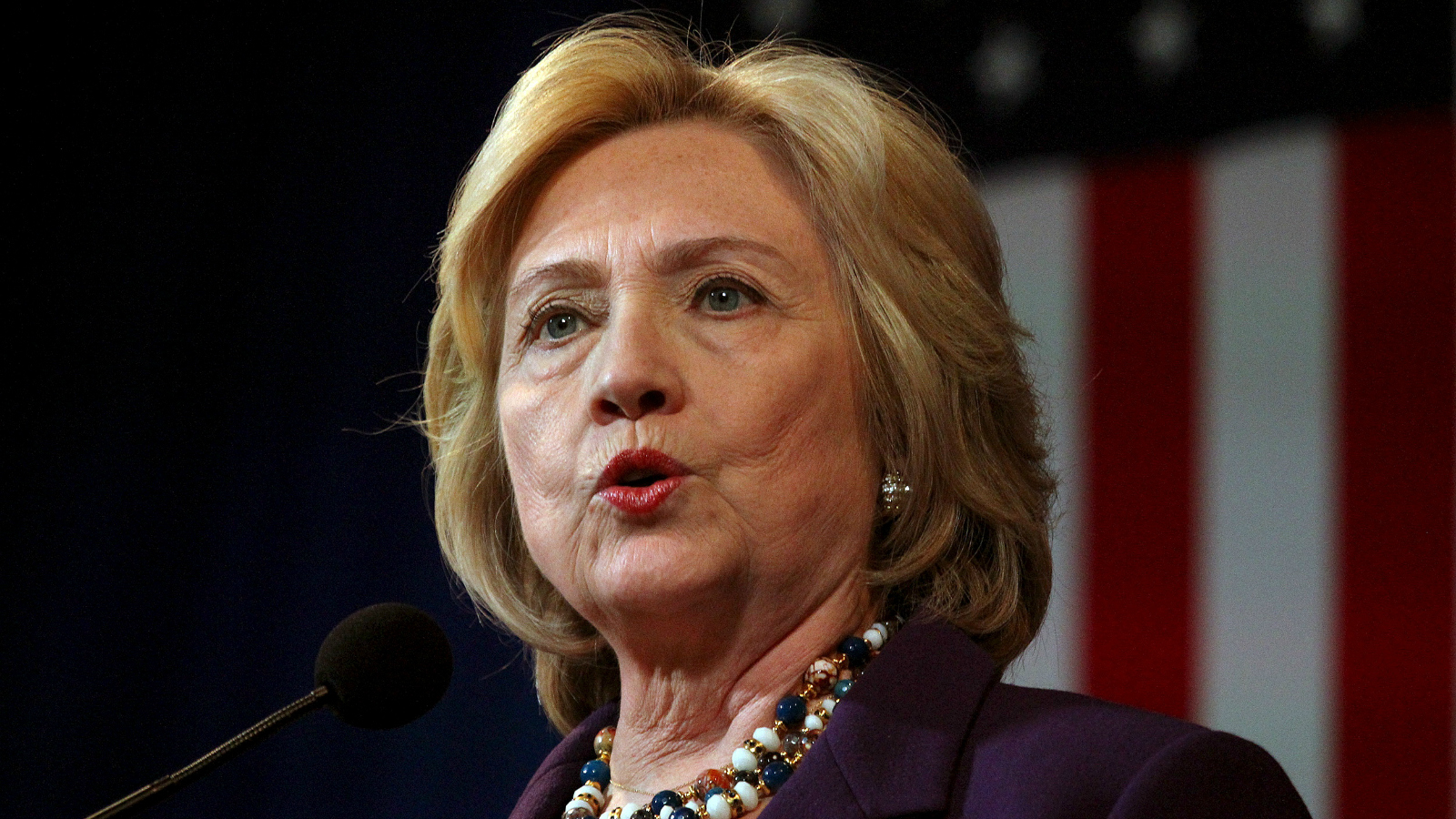On Sunday, Democratic presidential candidate Hillary Clinton told the world that the coal industry would be in trouble when she’s president. On Monday, she tried to take it all back.
At a town hall event broadcast on CNN Sunday evening, Clinton was asked, “Make the case to poor whites who live in Tennessee, Mississippi, Alabama, who vote Republican, why they should vote for you based upon economic policies versus voting for a Republican.” She tried to argue that she stands with working people, but it didn’t come out exactly right:
I’m the only candidate which has a policy about how to bring economic opportunity using clean renewable energy as the key into coal country, because we’re going to put a lot of coal miners and coal companies out of business … and we’re going to make it clear that we don’t want to forget those people. Those people labored in those mines for generations, losing their health, often losing their lives, to turn on our lights and power our factories. Now we’ve got to move away from coal, and all the other fossil fuels. But I don’t want to move away from the people who did the best they could to produce the energy that we relied on.
It’s true that Clinton is the only candidate who has laid out a comprehensive plan to help coal country transition to a cleaner economy. Her $30 billion plan would rebuild infrastructure and invest in public health, education, and entrepreneurial initiatives in order to help coal-reliant communities transition to a cleaner economy.
But of course that’s not the part of her statement that everyone glommed onto. Conservative politicians and commentators — and Democrats running for office in coal country — immediately attacked her for allegedly wanting to put the coal industry “out of business.”
“Hillary’s vow to kill coal miners’ jobs finishes a vast Democratic betrayal,” read the headline the in New York Post. Mitch McConnell, the Senate majority leader from Kentucky, called Clinton’s comments “callous” and “wrong” on the Senate floor. Breitbart wrote that Clinton’s statement is “a clear sign she intends to accelerate the destruction of one of the country’s leading energy sector industries.”
Two of the three Democratic candidates for governor of West Virginia also attacked: Booth Goodwin said he “absolutely disagreed” with Clinton, and Jim Justice, who made his fortune in coal, said he would “not support anyone who does not support coal,” according to the AP.
Clinton, in a head-spinning reversal, quickly backed up on Monday. After first pointing out that Republicans were spinning her words (which is true), the campaign released a statement saying, “Coal will remain a part of the energy mix for years to come, and we have a shared responsibility to ensure that coal communities receive the benefits they have earned and can build the future they deserve.”
But here’s the thing: Clinton may be afraid of losing coal country votes, but Big Coal has been dying for decades. As Alec MacGillis wrote in The New Republic in 2014, “Employment in the coal industry has been in decline for so long in states such as Kentucky and West Virginia that the number of jobs directly at risk from any clampdown on coal is far smaller than the sweeping rhetoric about ‘coal country’ would have one assume.” In Kentucky, the heart of “coal country,” employment in the industry went from 38,000 in 1983 to less 17,000 in 2012, MacGillis reports. And AP notes that production in the top three coal states declined between 5 and 20 percent in 2015 alone. In Ohio, it fell 22 percent.
While it’s true that environmental regulations — and automation — have had an impact on the industry, coal isn’t actually dying because of environmental regulations. It’s dying because of the free market. The decline in coal directly corresponds to the rise in natural gas, a cheaper and more efficient source of energy — and one that the GOP has been pushing in earnest. As Michael Lynch, an energy consultant, told The New York Times in 2014, “It’s not Obama’s war on coal. It’s reality’s war on coal. Natural gas turns out to be better than coal in the marketplace.”
With coal companies going bust and banks decreasing their support for the industry, no one can save Big Coal now. What the government can do is create clean energy jobs and help coal communities adjust to the new reality — which is exactly what Hillary Clinton was talking about doing. At least, until the bad press started rolling in.



